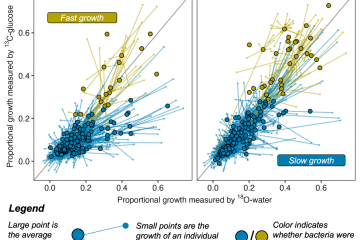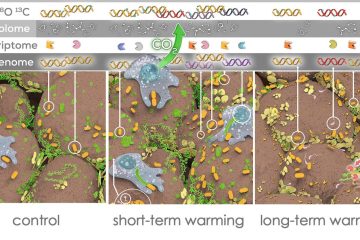Long-term nitrogen loading alleviates phosphorus limitation in terrestrial ecosystems
Increased human-derived nitrogen (N) deposition to terrestrial ecosystems has resulted in widespread phosphorus (P) limitation of net primary productivity. However, it remains unclear if and how N-induced P limitation varies over time. Soil extracellular phosphatases catalyze the hydrolysis of P from soil organic matter, an important adaptive mechanism for ecosystems to cope with N-induced P limitation. Here we show, using a meta-analysis of 140 studies and 668 observations worldwide, that N stimulation of soil phosphatase activity diminishes over time. Whereas short-term N loading (≤5 years) significantly increased soil phosphatase activity by 28%, long-term N loading had no significant effect. Nitrogen loading did not affect soil available P and total P content in either short- or long-term studies. Together, these results suggest that N-induced P limitation in ecosystems is alleviated in the long-term through the initial stimulation of soil phosphatase activity, thereby securing P supply to support plant growth. Our results suggest that increases in terrestrial carbon uptake due to ongoing anthropogenic N loading may be greater than previously thought.


